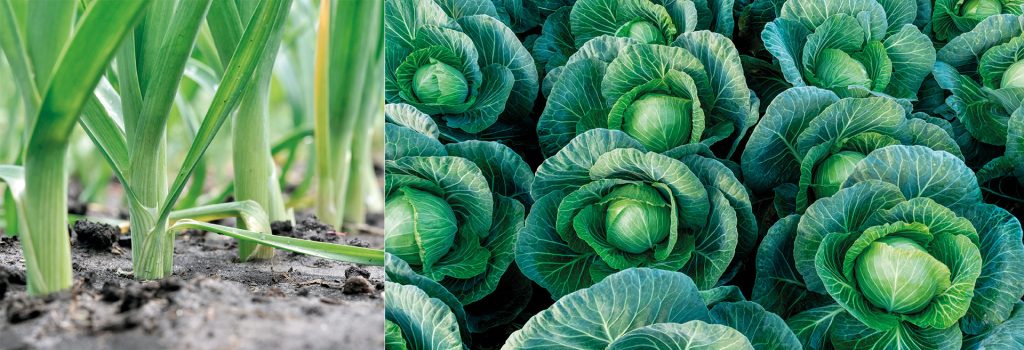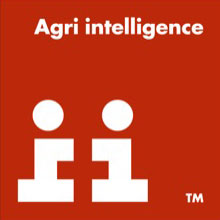Crop and product trials are an essential means of giving growers the information they need to produce productive and profitable crops, explains Don Pendergrast, Agrii head of non-combinable crop R&D.
The farming industry faces challenges from all sides. They may come in the form of regulatory changes or market pressures, but the impact is often much the same: more pressure on growers to deliver crops that meet yield and quality expectations with fewer resources. For Agrii, field trials serve to provide the answers being asked by growers.
Our horticulture trials programme is extensive, often spanning several seasons. It is principally focussed on fruit, vines and field vegetables, but there is also work on ornamentals, bulbs and herbs. This work falls into various categories. From the new product evaluations that support manufacturer submissions for regulatory approval and product authorisation through to novel uses of existing or emerging technologies under testing conditions. There is also an element of ‘horizon scanning’ on our behalf. This is when we look at what active substances may be withdrawn and how might crop protection strategies change to fill the gap.
The recent decision by DEFRA to give a two-year reprieve to parallel products is welcome news, but it is a case of ‘all that glitters is not gold’. These products will be subject to the re-application process, and importers will have to prove identicality. This may be little more than an administrative exercise, but HSE CRD is already dealing with a backlog of applications. This may mean that some products remain unavailable come the spring. Consequently, some importers may decide that the business case for re-application is not worth pursuing.
A core focus for Agrii is to improve the nutrient use efficiency of crops. This work has largely focussed on meeting plant needs in a more targeted and precise manner, but we are also investigating those means that better support the plant’s ability to access and utilise nutrients.
We have observed worthwhile benefits from the addition of symbiotic nitrogen-fixing endophytes, thereby improving performance and reducing losses. Other trials involving Agrii-Start Release, a soil-applied phosphorus release agent, involving a range of vegetable crops have been so successful that we have expanded the programme to consider bulb onions and brassicas.
Apiaceae crops face specific challenges. It has fallen on the industry to pick up the work previously undertaken by AHDB Horticulture under the SCEPTRE project. To this end, we have several trials investigating a total of 13 biological and conventional products as well as cultural measures for protection against crown rot in carrots grown under straw.
In alliums, the greatest challenge is in managing the perennial threat of downy mildew. Growers inside the European Union have already lost mancozeb and face losing dimethomorph too. Growers in Great Britain still have access to these fungicides, but their future is by no means secure.
Thrips remain a constant threat in other alliums, notably leeks. The loss of effective insecticides means control relies on only a few active substances. New substances are on the horizon, and our experience with these is promising, but they remain subject to regulatory approval.
In brassicas, especially storage cabbage, botrytis is a serious threat. Our fruit team has been investigating zero-residue means of protection for some time. Botector, a biological fungicide containing Aureobasidium pullans, has been found to extend the post-harvest shelf life of soft fruit. This winter, we will evaluate its performance against botrytis in storage cabbage.
For all the production challenges facing our industry, we can be grateful that the regulator in Great Britain has not followed the lead of the European Union. In the time since Brexit was finalised at the end of 2019, growers in Europe have lost mancozeb, isopyrazam and indoxacarb while etoxazole, famoxadone, flutriafol and prochloraz are under review. Some will be easier to replace than others, but control is likely to become more complex and expensive as a result.
It may be of scant consolation for those struggling with the pests and diseases that threaten crop performance, but for the time being at least, growers in GB can claim to have a competitive advantage over their EU counterparts. It’s a position we should strive to maintain.
Some widely used active substances have been lost and many more are under review in the European Union
| Active | Product situation in Europe since Brexit |
|---|---|
| Isopyrazam | Revoked |
| Mancozeb | Revoked |
| Indoxocarb | Revoked |
| Etoxazole | Revoked |
| Flutriafol | Revoked |
| Bacillus pumilus QST 2808 | Expires in 2024 |
| Bifenazate | No food uses (2022) |
| Spirotetramat | Expires in 2024 |
| Benthiavalicarb | High risk |
| Clofentezine | High risk |
| Difenoconazole | High risk |
| Dimethomorph | High risk |
| Mepanipyrim | High risk |
| Metribuzin | High risk |
| Napropamide-M | High risk |
| Phenmedipham | High risk |
| S-Metolachlor | High risk |
| Triflusulfuron-methyl | High risk |



